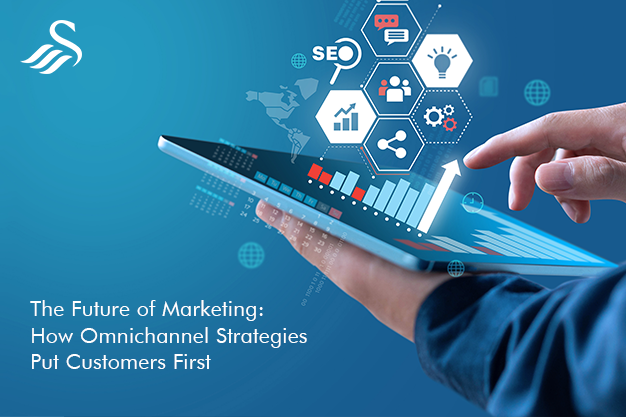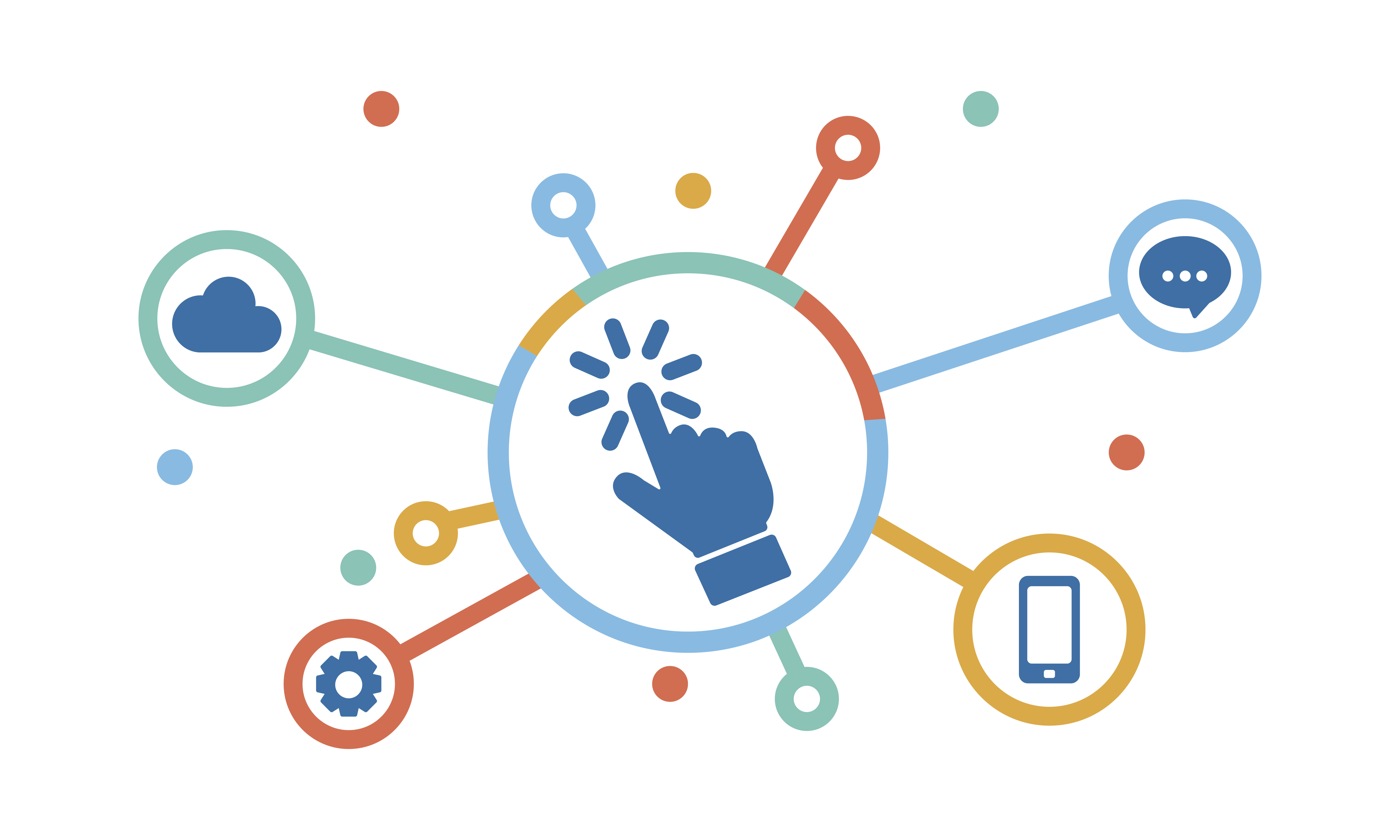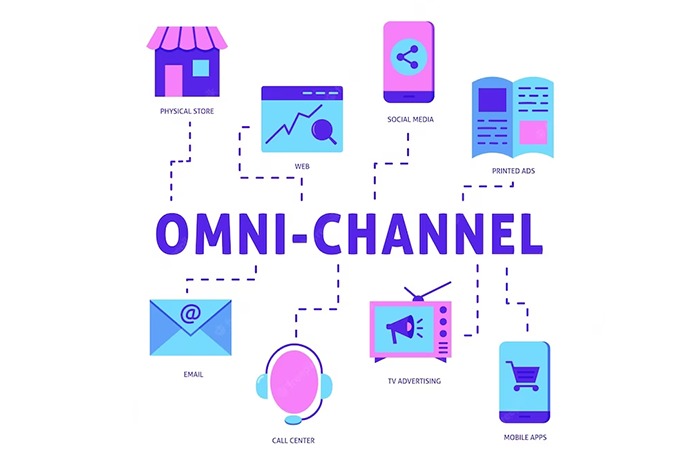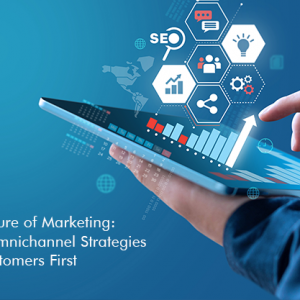29 Mar 2023by panda
The Future of Marketing: How Omnichannel Strategies Put Customers First

The customer journey has become increasingly complex and nonlinear in today’s fast-paced and ever-changing business landscape. With the proliferation of platforms, channels, and devices – both online and offline – businesses need help to adopt a customer-centric approach that can meet the dispersed demands of consumers.
According to a study by Google and Econsultancy, 89 % of successful brands believe that providing an assistive experience and predicting consumer demands are essential to achieving growth. But with so many consumer touchpoints to consider, how can brands effectively respond? The answer lies in omnichannel marketing.
Omnichannel marketing offers a comprehensive and holistic approach to engaging customers by seamlessly integrating all channels and touchpoints. In this blog post, we’ll explore why omnichannel marketing is the key to unlocking customer-centricity and building lasting relationships with your audience.
But first, let’s discuss what exactly is omnichannel marketing!
Omnichannel marketing: What Is It?

Omnichannel marketing, also known as customer-centric marketing, is a holistic approach that involves marketing products and services across all platforms with consistent messaging and branding. This strategy aims to provide a seamless and continuous experience for customers, regardless of the channel or touchpoint they use to interact with a brand.
An excellent example of a brand that has successfully implemented omnichannel marketing is Ikea, which allows customers to purchase products both online and offline, via an app, over the phone, and more. By integrating data from various sources such as Customer Relationship Management (CRM) data, purchase data, website user engagement, traffic data, and paid media data, The consistency and personalization of the consumer experience are ensured by an omnichannel marketing approach.
One of the benefits of an omnichannel marketing strategy is that it enables lead nurturing by providing customers with a seamless experience that encourages them to continue engaging with the brand. Additionally, an integrated data approach prevents sending irrelevant or redundant marketing messages to customers. For example, you won’t send an abandoned cart email to someone who has already completed their purchase.
It’s worth noting that the terms “omnichannel” and “multichannel” are sometimes used interchangeably, leading to confusion. However, while multichannel marketing involves promoting products or services across multiple channels, it lacks the seamless integration and personalized approach of omnichannel marketing. In conclusion, an omnichannel marketing strategy is crucial for businesses looking to build lasting relationships with customers and stand out in a crowded marketplace.
Omnichannel Vs. Multichannel Marketing
When it comes to marketing strategies, it’s easy to confuse omnichannel and multichannel marketing. While they may sound similar, they have distinct differences in terms of their approach and focus.
- Multichannel marketing- involves utilizing multiple channels to reach customers, but these channels may not be seamlessly integrated or aligned in terms of messaging and branding.
For example, a brand may have a website, a Facebook page, and an Instagram account, but these channels may operate independently of each other.
- Omnichannel marketing- aims to provide a consistent and seamless customer experience across all possible touchpoints, regardless of whether they are online or offline. This means that all channels are integrated, and customers can switch between them without encountering any inconsistencies or disruptions.
Unfortunately, many brands still focus solely on multichannel marketing, assuming that having a presence on a few platforms is enough to provide an omnichannel customer experience. However, this approach often leads to inconsistent messaging and poor user engagement, which can negatively impact customer satisfaction and loyalty.
In summary, the key difference between omnichannel and multichannel marketing is their focal point. While multichannel marketing is focused on making the brand available on multiple channels, omnichannel marketing centres on creating a harmonious environment and experience for customers across all touchpoints. By prioritizing the customer experience, brands can build stronger relationships with their audience and stand out in a crowded marketplace.
Reasons to Adopt an Omnichannel Marketing Strategy

By integrating your marketing efforts across all channels and touchpoints, you can achieve a range of benefits for your business.
Here are just a few reasons why you should embrace an omnichannel marketing strategy:
Reach a wider audience: With omnichannel marketing, you can meet customers wherever they are, whether that’s in-store, online, or on social media. By having a presence on all relevant platforms, you increase the chances of prompting a purchase when customers are most engaged.
Build a cohesive brand identity: Consistency is key when it comes to omnichannel marketing. By presenting a unified brand image and message across all channels, you can create top-of-mind recall and build brand loyalty.
Provide a seamless customer experience: Customers often use multiple channels before making a purchase, and they expect a seamless experience every step of the way. By delivering an omnichannel experience, you can make it easy for customers to move between channels and complete their purchases.
Increase customer satisfaction: A seamless experience and consistent branding can lead to greater reliability and customer satisfaction. This, in turn, can help you nurture leads, win back customers, and reduce customer churn.
Boost revenue: By making it easy for customers to make subsequent purchases or renew their subscriptions, you can ensure ongoing revenue and increase profitability over time.
In short, an omnichannel marketing strategy can help you achieve a range of business goals, from increasing revenue to improving customer satisfaction. By embracing this approach, you can create a seamless, customer-centric experience that sets your brand/business apart.
Steps to Kickstart a Multichannel Marketing Campaign
Shifting to an omnichannel mindset requires a focus on three key elements: consumer, data, and technology. To provide a seamless omnichannel customer experience, here’s how your brand can get started:
i) Prioritize a Customer-First Mindset
Omnichannel marketing is all about placing the customer at the center of your strategy. This requires a purpose-driven approach, rather than focusing solely on profits. Although it may be counter-intuitive for business-minded individuals, a customer-first mindset is critical for steady brand growth. Remember that this shift is not a one-time process, but rather an ongoing commitment by your entire team.
ii) Analyze Your Data
Once you’ve established a customer-centric mindset, it’s time to get technical. Brands that use first-party data for marketing have seen nearly three times more revenue and a 1.5% increase in cost savings, according to Google. Start by examining your current efforts and data from your website and social media pages. Make sure your website can be found and crawled by Google, and analyze key performance indicators like unique visitors, sessions, and conversion rates. For social media, review comments and look for recurring themes, as well as user engagement metrics.
iii) Leverage Your Data
Whether your data is positive or negative, use it to your advantage. Identify which channels bring in the most visitors to your website and apply the same tactics to other channels. If a product or service receives repeated positive feedback, highlight it in your social posts. Conversely, if you find recurring issues, work to solve them immediately.
Although you’re entering the world of omnichannel marketing, there’s no need to be on every channel at once. Instead, focus on the channels you’re currently on and master them. You can eventually grow your web presence over time.
Omni-Channel Marketing Examples To Inspire Your Brand

To truly understand how to implement omnichannel marketing and increase profits, it’s best to look at examples of companies that are doing it right. Here are two companies that are leading the way:
Google is the perfect example of a company that takes a customer-centric approach seriously. With its seamless synchronization, users can easily switch between devices without missing a beat. This is one of the reasons why Google holds an impressive 83% of the global search engine market share.
Google’s powerful synchronization capabilities don’t just stop within its ecosystem, but it also extends to other platforms that offer the “Sign in with Google” option, creating a harmonious customer experience across multiple platforms.
Spotify
Spotify is another company that excels in omnichannel marketing. It offers a consistent experience across all platforms, from mobile to web and desktop, syncing its apps in real-time.
For example, if you’re listening to Spotify on your laptop, the mobile app will display the song or podcast that’s currently playing. Additionally, Spotify has seamlessly integrated with numerous apps and services, including voice assistants, maps, and messaging apps.
Sailax Media: Lead Nurturing Omni-Channel Marketing Campaigns
Omni-channel marketing has become a necessity for businesses looking to increase profits and improve customer satisfaction. You can expand your reach, maintain a cohesive brand identity, and deliver a seamless customer experience that drives loyalty and repeat business.
To get started with omnichannel marketing, you need to adopt a customer-first mindset and leverage your data to identify the channels that work best for your brand. You can use the examples of Google and Spotify to inspire your omnichannel campaigns and strive to provide a harmonious experience across all your touchpoints.
At Sailax Media, we specialize in creating lead-nurturing omnichannel marketing campaigns that build lasting relationships with your customers. If you’re interested in learning more about how omnichannel strategies can benefit your business, let’s talk. Contact us today to schedule a consultation.
Also Read: Google’s Top Pick: Why Cornerstone Content Should Be the Foundation of Your Website

